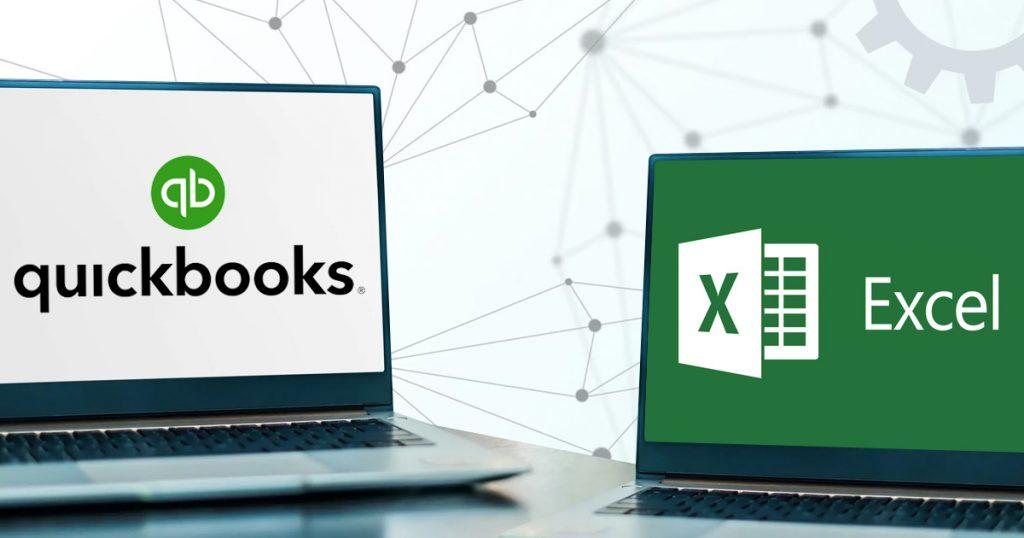When managing finances, many people consider QuickBooks and Excel as potential solutions. Each tool has its strengths and weaknesses, making them suitable for different users and situations. See the difference between QuickBooks and Excel, helping you decide which is the better fit for your financial management needs.
What is QuickBooks?
Intuit developed QuickBooks, an accounting software. QuickBooks was specifically built by Intuit for small and medium-sized businesses. QuickBooks like Excel offers a range of features to simplify financial tasks. You can create invoices, track expenses, manage payroll, and generate financial reports. The software comes in different versions, including QuickBooks Online and QuickBooks Desktop, allowing you to choose the one that best suits your needs.
What is Excel?
Excel is not accounting software; it is a spreadsheet program from Microsoft. People widely use Excel for organizing and analyzing data. Excel allows you to conduct a variety of tasks, including budgeting, forecasting, and data analysis. While Excel can be used for financial management, it is not designed solely for accounting like QuickBooks.
Difference Between QuickBooks and Excel
Let’s compare the key features of QuickBooks and Excel to help you understand how they differ.
1. Accounting Features
QuickBooks: QuickBooks is loaded with accounting features. It enables users to generate invoices, track income and expenses, and manage accounts. QuickBooks also provides financial statements and tools for tax preparation.
Excel: In contrast, Excel does not have built-in accounting features. You can create your own accounting templates or use third-party templates, but you will need to do more manual work. While Excel can handle basic tasks like tracking expenses, it lacks the advanced features of QuickBooks.
2. User-Friendliness
QuickBooks: QuickBooks is designed to be user-friendly. Its user-friendly interface allows users to utilize the software with ease, even if they lack accounting experience. Plus, QuickBooks offers customer support, which is beneficial for new users.
Excel: While many people use Excel, it can be challenging for beginners. To effectively use Excel for financial tasks, you need to understand how spreadsheets work, including formulas and functions. Those who are unfamiliar with spreadsheets may find this learning curve difficult.
3. Automation
QuickBooks: One major advantage of QuickBooks is its automation capabilities. The software can automatically import and categorize bank transactions and expenses. This feature saves time and minimizes the possibility of manual errors.
Excel: Excel involves human data entry, which can be time-consuming and prone to errors. You can create macros to automate some tasks, but it doesn’t offer the same level of automation as QuickBooks. This limitation can make managing finances in Excel more tedious.
4. Reporting and Analytics
QuickBooks: QuickBooks comes with a variety of built-in reports. You may simply create profit and loss statements, balance sheets, and cash flow reports. The software provides customization, so you can personalize reports to your specific requirements.
Excel: Excel is particularly effective for data analysis. You can create custom reports using formulas, charts, and graphs, giving you the tools to analyze your financial data in-depth. However, this process requires more effort than using the pre-built reports available in QuickBooks.
5. Scalability
QuickBooks: QuickBooks is designed to grow with your business. It provides a variety of price levels and features, allowing you to choose what best suits your needs. As your company grows, you can quickly upgrade to more advanced capabilities.
Excel: While Excel is adaptable, it may not be the greatest option for firms that are fast expanding. As your transaction volume grows, managing them in Excel can become hard and time-consuming. Furthermore, a lack of built-in accounting functions may limit your ability to scale successfully.
QuickBooks and Excel for Small Business
When it comes to small businesses, choosing between QuickBooks and Excel can impact financial management. Here’s a look at how each tool can help small business owners.
Advantages of QuickBooks for Small Businesses
- Time-Saving: QuickBooks simplifies numerous activities, allowing you to concentrate on operating your business rather than spending hours doing bookkeeping.
- Comprehensive Features: QuickBooks provides features tailored for small businesses, making it a complete accounting solution.
- Customer Support: QuickBooks provides customer assistance to assist you in resolving any issues that may arise.
- Integrations: QuickBooks can connect with various applications, making it easier to manage your business operations.
Advantages of Excel for Small Businesses
- Cost-Effective: Excel may be more affordable for very small businesses or startups that have simple financial needs.
- Flexibility: You can customize Excel spreadsheets to suit your specific requirements, giving you control over your financial management.
- Familiarity: Many users already know how to use Excel, which can make it easier to get started without additional training.
When to Choose Excel and QuickBooks?
When deciding between QuickBooks and Excel, consider these factors:
When to Choose QuickBooks Over Excel
- Your business needs regular invoicing and payment tracking.
- You require strong payroll management features.
- You prefer automated processes to save time on manual data entry.
- Your team includes several users that require simultaneous access to financial information.
When to Choose Excel Over QuickBooks
- You need a flexible tool for various types of data analysis beyond accounting.
- Your business operates on a tight budget, and you want to avoid subscription payments.
- You need advanced customization options that QuickBooks doesn’t offer.
- You are comfortable using spreadsheet functions and want control over your data.
Choosing the Right Tool for Your Business
In choosing QuickBooks and Excel, the best choice depends on your specific needs and circumstances. QuickBooks is suitable for small and medium-sized enterprises that require sophisticated accounting capabilities, automation, and detailed reporting. On the other hand, Excel offers flexibility and is a cost-effective solution for those who prefer manual financial management.
Knowing the strengths and limitations of both tools allows you to make an informed selection that is aligned with your business objectives. Whether you use QuickBooks or Excel, both may help you manage your money efficiently.
